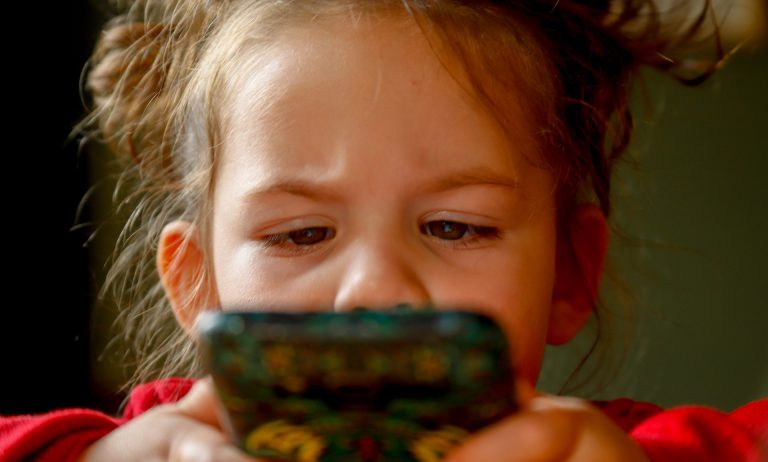Disciplining Your Child: Avoiding Common Mistakes for a Strong Parent-Child Relationship
Introduction:
Disciplining children is an essential aspect of parenting that helps instill values, boundaries, and a sense of responsibility in them. However, disciplining can be challenging, and even the most well-intentioned parents can make mistakes. In this comprehensive guide, we will explore some common mistakes to avoid when disciplining your child. By understanding and rectifying these errors, you can create a positive and nurturing environment that promotes your child’s growth and development.
Inconsistent Discipline:
One common mistake parents make is being inconsistent with their disciplinary actions. When discipline is inconsistent, children may become confused about the consequences of their actions, leading to uncertainty and potential behavioral issues. It is crucial to establish consistent rules and expectations and apply discipline fairly and consistently.
Using Harsh or Physical Punishment:
Resorting to harsh or physical punishment can have long-lasting negative effects on a child’s emotional well-being. Physical discipline not only teaches children that aggression is an acceptable way to solve problems, but it can also damage the parent-child relationship. Instead, focus on using positive reinforcement, redirection, and logical consequences to guide your child’s behavior.
Ignoring Positive Behavior:
Sometimes, parents tend to focus solely on correcting negative behavior, inadvertently overlooking positive behavior. Ignoring positive behavior can discourage children from behaving well, as they may believe that their efforts go unnoticed or unappreciated. Acknowledge and praise your child’s positive behavior regularly to reinforce good habits and motivate them to continue making positive choices.
Unrealistic Expectations:
Setting unrealistic expectations for your child’s behavior can lead to frustration and disappointment. Every child is unique, and their development progresses at different rates. Ensure that your expectations align with your child’s age, maturity level, and abilities. This approach will help foster a sense of achievement and encourage further growth.
Lack of Communication:
Effective communication is crucial in any parent-child relationship, including discipline. Failing to communicate clearly and calmly about the reasons behind disciplinary actions can create confusion and resentment. Take the time to explain why a particular behavior is unacceptable and how it can impact others. This approach helps children understand the consequences of their actions and promotes empathy.
Overlooking the Power of Positive Reinforcement:
Positive reinforcement is a powerful tool in shaping your child’s behavior. By providing praise, rewards, and encouragement for good behavior, you motivate your child to continue making positive choices. Remember to be specific and genuine in your praise, highlighting the specific behavior you want to reinforce.
Allowing Emotions to Overrule Reason:
Disciplining children can be an emotionally charged experience, but it’s essential to remain calm and composed. Allowing your emotions to overrule reason can lead to impulsive disciplinary actions that may be excessive or ineffective. Take a deep breath, step back, and approach discipline with a clear mind and a focus on teaching and guiding rather than punishing.
Lack of Consensus between Parents:
When parents have conflicting disciplinary approaches, it can create confusion and undermine the effectiveness of discipline. It is crucial for parents to communicate and work together to establish consistent rules and consequences. This unified front ensures that children receive consistent guidance and understand the expectations from both parents.
Not Considering Individual Needs:
Each child has unique needs and responds differently to discipline. It’s important to consider your child’s temperament, learning style, and emotional sensitivity when implementing disciplinary strategies. Tailoring your approach to match their individual needs helps promote a positive learning experience and minimizes unnecessary conflict.
Neglecting Emotional Connection:
Discipline should not be solely focused on correcting behavior; it should also strengthen the emotional bond between parent and child. Taking the time to connect with your child on an emotional level helps build trust, mutual understanding, and empathy. Use discipline as an opportunity to teach valuable lessons while reinforcing your love and support.
Frequently Asked Questions:
How to discipline a child without being abusive ?
Disciplining a child without resorting to abuse is crucial for their emotional well-being and healthy development. Here are some strategies to discipline effectively and respectfully:
- Establish clear expectations: Clearly communicate your expectations and rules to your child, ensuring they understand what is acceptable behaviour.
- Use positive discipline techniques: Focus on positive reinforcement, offering praise and rewards for desired behaviours. Encourage open communication and problem-solving.
- Set appropriate consequences: When negative behaviour occurs, establish appropriate consequences that are fair and related to the behaviour. Emphasize the importance of learning from mistakes.
- Be a role model: Demonstrate respectful and non-violent behaviour yourself. Children learn by observing and imitating their parents’ actions.
- Practice effective communication: Use calm and assertive communication to convey your expectations and address behaviour issues. Listen actively and engage in constructive conversations.
How to discipline a child without yelling or hitting ?
Disciplining a child without resorting to yelling or hitting is essential for maintaining a healthy parent-child relationship and promoting emotional well-being. Here are some alternatives to consider:
- Stay calm and composed: Take a deep breath and manage your own emotions before addressing your child’s behaviour. Remaining calm sets a positive tone for discipline.
- Use clear and firm communication: Express your expectations and consequences in a calm and assertive manner. Use a firm tone without resorting to shouting.
- Practice active listening: Give your child a chance to express themselves and actively listen to their perspective. This promotes mutual understanding and problem-solving.
- Use non-verbal cues: Implement non-verbal signals or cues that redirect your child’s attention or remind them of appropriate behaviour without the need for yelling.
- Take a timeout: If you find yourself getting overwhelmed, take a brief break to collect your thoughts and regain composure before addressing the situation.
Why does a child misbehave for one parent but not the other ?
Children may exhibit different behaviours with different parents for various reasons. Some possible explanations include:
- Attachment dynamics: Children may have a stronger attachment or feel more secure with one parent, leading them to test boundaries more with the other parent.
- Consistency in discipline: If there are inconsistencies in discipline between parents, children may learn to exploit these differences and behave differently depending on who is present.
- Parent-child relationship: The quality of the parent-child relationship may differ between parents, influencing the child’s behaviour. A child may feel more comfortable and connected with one parent, leading to more compliant behaviour.
- Individual dynamics: Children may have unique relationships and dynamics with each parent based on their personalities, preferences, or past experiences.
Understanding the reasons behind a child’s different behaviour can help parents work together and create consistent discipline strategies that foster positive behaviour.
How to discipline a child who does not care about consequences ?
Disciplining a child who seems indifferent to consequences requires thoughtful approaches to encourage responsibility and accountability. Consider the following strategies:
- Focus on intrinsic motivation: Help your child develop an internal sense of responsibility by discussing the reasons behind rules and emphasising the impact of their actions on themselves and others.
- Offer choices within limits: Give your child limited choices that still align with your expectations. This allows them to feel a sense of control while learning the consequences of their decisions.
- Connect consequences to their interests: When possible, link consequences to activities or privileges your child values. This can help them see the connection between their behaviour and the things they care about.
- Teach problem-solving skills: Help your child develop problem-solving abilities to navigate challenging situations and make responsible choices.
- Provide consistent and logical consequences: Ensure that consequences are consistently applied and related to the behaviour. Consistency helps children understand the cause-and-effect relationship between their actions and outcomes.
How to discipline a child without losing their love and respect ?
Disciplining a child while maintaining their love and respect is vital for a healthy parent-child relationship. Here are some strategies to achieve this balance:
- Show unconditional love: Ensure your child knows that your love for them is unwavering, regardless of their behaviour. Separate their actions from their inherent worth as a person.
- Use positive discipline techniques: Focus on reinforcing positive behaviour through praise, rewards, and encouragement. Highlight their strengths and efforts rather than solely focusing on their mistakes.
- Communicate with empathy: Take the time to understand your child’s perspective and feelings. Validate their emotions, even if you need to address their behaviour.
- Set clear expectations and boundaries: Establish clear rules and expectations, and consistently enforce them. Children feel secure when they know the boundaries and consequences in advance.
- Foster open communication: Create an environment where your child feels comfortable expressing themselves and discussing their thoughts and concerns. Active listening and respectful dialogue contribute to mutual understanding and trust.
Conclusion:
‘Parenting is a journey, not a destination.’ Embrace this journey, learn from your mistakes, and nurture discipline to create a lifetime of love, trust, and growth with your child.”
Disciplining your child is a challenging but necessary part of parenting. By avoiding common mistakes such as inconsistent discipline, harsh punishment, and unrealistic expectations, you can create a positive and nurturing environment for your child’s growth.
Effective communication, positive reinforcement, and considering individual needs are essential elements of successful discipline. Remember to maintain an emotional connection with your child throughout the disciplinary process, fostering a loving and supportive relationship.
By implementing these strategies, you can guide your child’s behaviour effectively and promote their overall well-being and development

Rohit is a blogger and a father of two adorable children, aged six and one. He enjoys spending time with his kids. In this blog, he discusses his parenting experiences. His hope is that his parenting tips will help other parents in developing strong bonds with their children






